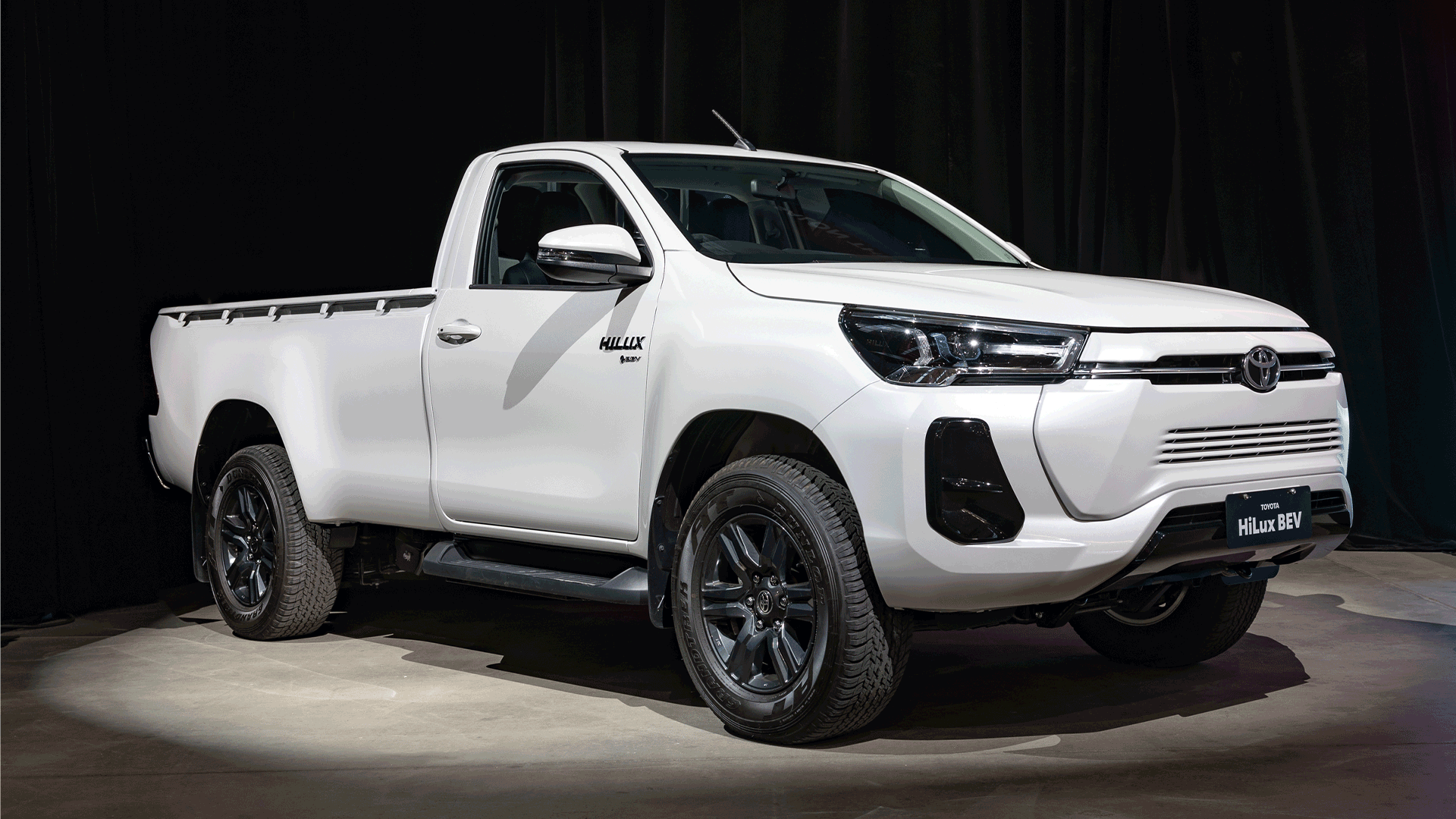
Chinese auto giants are poised to challenge Japan’s dominance in Thailand’s pickup truck market by rolling out hybrid and electric pickups, a media report said.
Toyota Motor and Isuzu Motors hold almost 90% of Thailand’s pickup truck market but Chinese automakers have set their sights on this lucrative territory, the Nikkei reported.

Discover B2B Marketing That Performs
Combine business intelligence and editorial excellence to reach engaged professionals across 36 leading media platforms.
The report said Great Wall Motor (GWM) was gearing up to introduce the first hybrid pickup truck in Thailand, ahead of Japanese rivals, as early as May. Zhejiang Geely Holding Group was also getting ready to launch electric pickups in the country.
Nikkei said, on the morning of 25 March, ahead of the public opening of the Bangkok International Motor Show, a notable figure was spotted on Isuzu’s stand attentively listening to an Isuzu executive’s insights about the EV models on display.
The man in question was Michael Chong, general manager of Great Wall Motor in Thailand, Nikkei said.
Having cut his teeth on product planning in the US, South Asia and elsewhere, Chong was dispatched to Thailand.
Since Great Wall bought the former General Motors factory in 2020 and started operations, he had been orchestrating product launches in tandem with corporate headquarters in China.
Great Wall unveiled a hybrid Poer pickup at the show, setting itself apart from many other Chinese carmakers focusing on EVs. The company plans to iron out details, such as pricing and when to roll out the model in Thailand, as early as May, the report said.
According to Great Wall, its pickup brand is the top seller in China, with market share of 50%, helping to lift its sales to 2m vehicles worldwide.
“We want to make it clear that GWM will be the first, even beating Japanese brands, to roll out hybrid pickup trucks in Thailand,” Chong said in an interview with Nikkei.
With pickup trucks accounting for half the new vehicle market in Thailand, Chong revealed Great Wall has been closely monitoring the moves of his company’s Japanese rivals for years.
Electrifying pickup trucks was said to be a Herculean task compared with that of passenger cars. Considering the weight of the vehicles and payload capacity, large batteries were essential. However, increasing battery size pushes up the price, making EV pickups a tough sell. And while the typical range for passenger EVs has reached around 500km (300 miles), EV pickups can only travel a little over 300km (200 miles) on a single charge.
In this regard, hybrid pickups may offer a more realistic step toward decarbonisation, Nikkei said.
It said an executive at a Japanese carmaker involved in pickup trucks was wary of going fully electric, viewing hybrids as a strategy that closely aligns with what the company calls “multipathway” strategies.
Hajime Yamamoto of Nomura Research Institute Thailand told Nikkei: “GWM will likely produce green pickup trucks in Thailand for markets in countries such as Australia that will likely introduce stringent environmental regulations in the future.”
Nikkei noted selling vehicles in the Thai countryside, where Toyota and Isuzu have a stronghold, presented challenges to Great Wall, due to its underdeveloped dealer network. Introducing hybrid vehicles in areas where buyers were sensitive to changes in prices and interest rates is also a risk.
The report noted pickup trucks were dubbed the “national car” in Thailand and serve as a linchpin category. Japanese giants, including Toyota, Isuzu and Mitsubishi, have set up global export hubs there, earning it the moniker “the Detroit of Asia.”
Nikkei noted people movers derived from pickups called PPVs were also manufactured in Thailand. They were large, high margin vehicles which use the same platforms as corresponding pickup trucks.
Automakers had built extensive supply chains over the years in Thailand with local procurement rates exceeding 90% in many cases. This has made the country a cash cow for Japanese brands.
Nikkei added pickup trucks were a cornerstone of Japanese automakers’ business in Thailand. Together, they controlled 88% of the pickup market in 2023. Isuzu led with 42%, followed by Toyota with 40% and Mitsubishi with 5%.
Apart from Ford, which was holding its ground with 11%, the presence of non-Japanese brands was minuscule, with Chinese brands like SAIC’s MG capturing less than 1% of sales.
However, Nikkei said, the trend toward electrification was encouraging other players to jump into the pickup segment, threatening the position of Japanese brands in Thailand’s key market.
Last October, the Thai government revealed Zhejiang Geely Holding Group was preparing to roll out an EV pickup in the country. The announcement came after Thai Prime Minister Srettha Thavisin’s meeting with company executives in Beijing. Srettha was said to have come away from the meeting feeling bullish.
At this year’s Bangkok motor show, Vietnamese EV manufacturer VinFast showcased a concept pickup truck, while Shanghai Hui Yang New Energy Technology showed off EV pickups with swappable batteries, Nikkei said.
Toyota and Isuzu were set to begin commercial production of EV pickups by 2025, aiming to sell them in Thailand afterward. Isuzu also planned to introduce hybrid pickups.
“Toyota is also considering hybrid models,” Noriaki Yamashita, president of Toyota Motor Thailand, told Nikkei. “We are keen to see just how much of an edge hybrid pickup trucks can showcase over diesel vehicles.”
See also: Japanese automakers step up BEV investments in Thailand
China plans Thai auto research institute
GWM launches Tank PHEV SUV in Thailand






